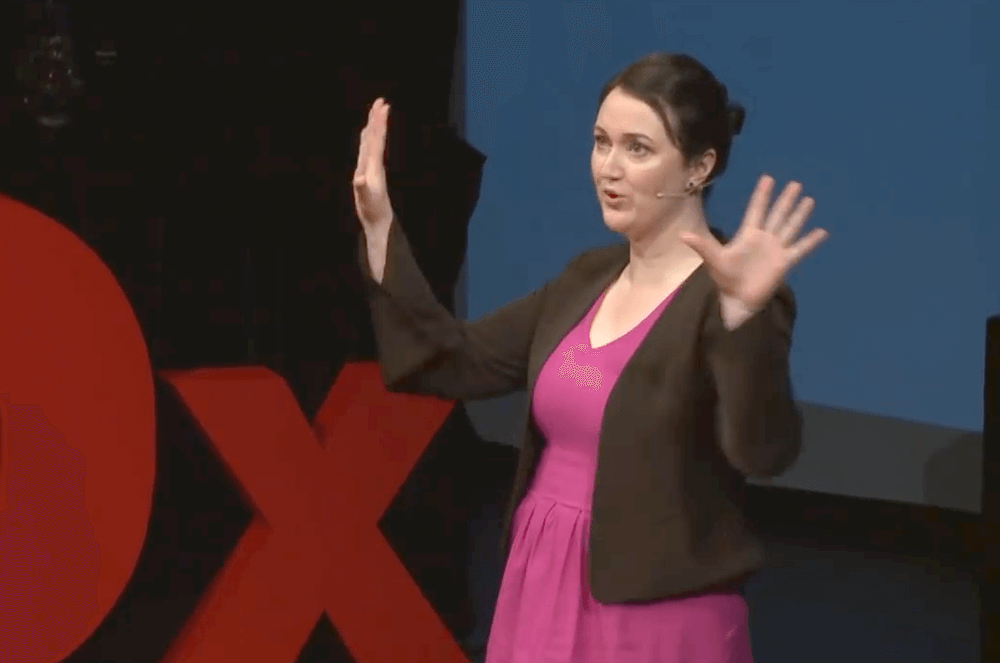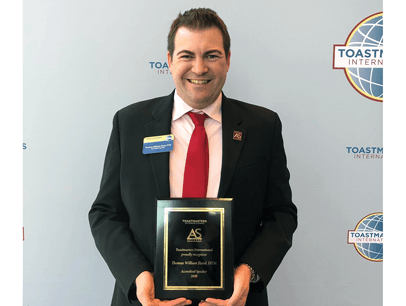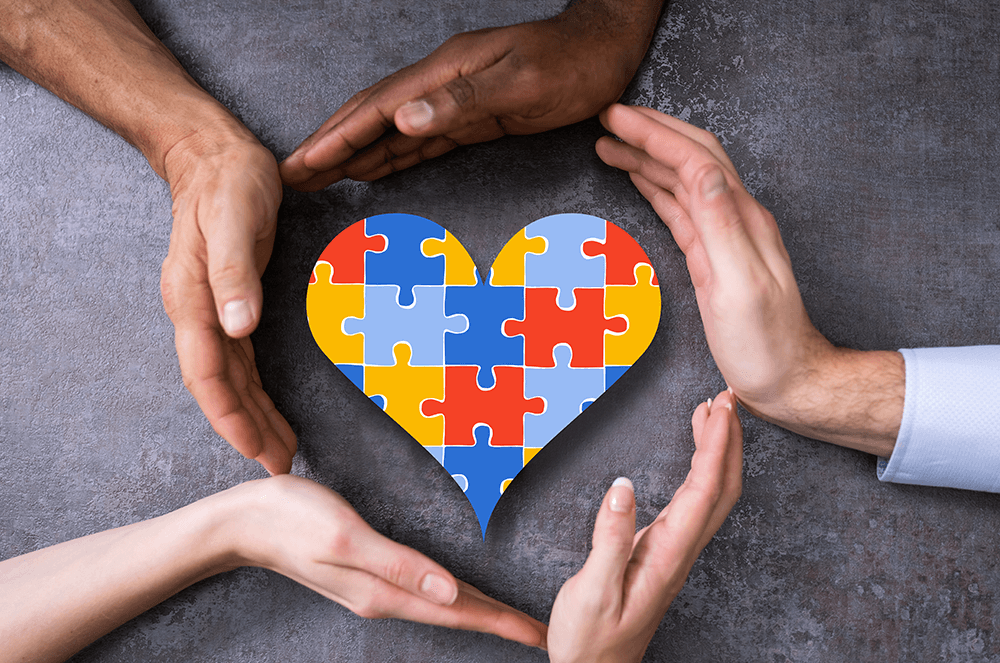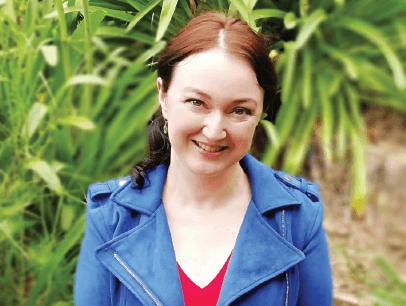In 2018, I publicly shared my autism diagnosis during my TEDx speech, “How to Be Normal, and Why Not to Be.” I wanted people to know I’m autistic, and that I’m successful because of, not in spite of, the way my brain is wired. I also wanted to rewrite “normal,” based on all I’d learned—including as a Toastmaster—before and especially after I was diagnosed.
That TEDx speech was the beginning of a journey, not the culmination as I’d originally thought. My new book, Autistic World Domination, offers encouragement for autistic people to create the world they want for themselves.
As a child, I always felt just a bit different. And I was different, in the way my brain handled information. After my diagnosis, it took a long time to feel comfortable with my autistic identity. But as I met and connected with other adults like me, we realized we weren’t deficient, or broken—just trying to navigate a world designed by and for “neurotypical” brains.
In this episode of The Toastmasters Podcast, Jolene Stockman, DTM, shares her story of being autistic and how Toastmasters helps her and other neurodivergent communicators.
I now know that many humans are neurodivergent, a term used to describe people whose brains are different from typical. Neurodiversity acknowledges that people have specific ways of being in and experiencing the world, due to how their brain processes information. Research shows there isn’t one “right” type of brain. Some people are more effective at hands-on work; others are great with numbers. Some excel at speaking; others are impressive writers. This has always been true, but due to continuing research into brain function, we have the perspective to understand more about how individual brains can specialize.
Leadership isn’t always loud, and a voice doesn’t have to be verbal.
Statistics on the prevalence of individual neurodiversities (such as dyslexia, attention deficit disorder, autism) suggest that human brain functions vary widely across the world’s population. So, while many people can process information and function in ways that are considered typical, human beings as a group are neurodiverse.
Of all the activities that might be of interest to those with non-typical brains, you might be surprised to learn that Toastmasters has a distinct appeal. It’s the ideal program for neurodivergent minds because as members, we’re given the tools and support to be ourselves.
I was a member of the Ngāmotu Breakfast Toastmasters Club in New Plymouth, Aotearoa, New Zealand, for more than a year before I contributed verbally. I had been encouraged to take roles and sign up for speeches by my mentor Leo Baxendale, a five-time DTM and exemplary Toastmaster. I didn’t know it at the time, but I have situational mutism. I can be physically unable to speak under specific stressors. At the time, I believed what I had been told my whole life, that I was just shy and needed to “work harder” and learn to speak up.
My internal criticism about my lack of Toastmasters progress was relentless. But I never heard any such thing from another Toastmaster. What I heard from them was support, encouragement, constructive feedback, appreciation. The focus was always on what I wanted to achieve, and how to make it possible. That was a huge benefit for me.
As it turns out, Toastmasters was the perfect place to nurture and support my way of being in the world. Here’s why:
5 Ways Toastmasters Supports Neurodivergencies
1 Consistency and transparency
All human beings are sensitive to stress; however, neurodivergent brains often feel it more strongly. Repetition and routine can provide an oasis of calm, and Toastmasters provides that consistency in abundance: There are long-term schedules, a strict agenda, exact timings. In fact, you can go to club meetings anywhere in the world and the elements of a club will be the same. This strict sense of sameness lets neurodivergent brains relax into growth.
2 A role-based hierarchy
Members enter every meeting with varying degrees of fear. Our outside titles and achievements, our degrees and pedigrees? Wiped away. Public speaking is the great equalizer. Yet in Toastmasters, every meeting role is neatly defined, scheduled, and rotated. The Toastmasters hierarchy is not based on politics, finances, or arbitrary social rules. A role is a role regardless of age, gender, appearance, or skill level.
3 Step-by-step resources
Every element of Toastmasters has clear, written guidelines. Every role, education project, award, and activity are planned for and explained up front, step-by-step. Toastmasters offers resources, such as scripts, checklists, Toastmaster magazine articles, podcasts, and materials in Base Camp and on the website to support you as you learn. You can practice using different communication styles—such as verbal, non-verbal, drawing, writing, or using speech devices or technology—to highlight diverse presentation skills.
4 Communication styles
Research has revealed that autistics and other neurodivergent individuals have ways of communicating that are effective, but distinct from neurotypicals. For example, neurotypical communication includes indirect words, small talk, and eye contact.
Conversely, neurodivergent communicators prefer direct words, clear meanings, comfortable silence, and whole body listening.
And while most existing systems favor neurotypical communication, the very DNA of the Toastmasters program lends itself to bridging the two styles. Since meetings are based on a routine, there are minimal unscripted social interactions. All members share a common interest, and small talk is optional. I was able to skip social politics and weather updates and launch straight into a more comfortable task-related chat, without being accused of being anti-social or too blunt.
5 The individualized approach
Toastmasters aims to stretch your comfort zone, but in ways that work for you. The program is self-paced, and you build on each skill as you feel ready. You are empowered to choose. You can compete, but you don’t have to. You can lead, but you don’t have to. You can grow at your own pace, all while having the resources and support to dip in your toe (or tongue) with absolute safety. Our journey is our own.
I will add a disclaimer here. While Toastmasters provides the structure and branding, every Toastmasters club has its own culture, energy, and personalities. Visit lots of clubs and find what works for you.
 New Zealander Jolene Stockman, DTM, is an award-winning writer who has spoken all over the world since giving her first TEDx Talk, where she shared her autism diagnosis.
New Zealander Jolene Stockman, DTM, is an award-winning writer who has spoken all over the world since giving her first TEDx Talk, where she shared her autism diagnosis.Celebrate Yourself
Finally, understanding and celebrating my own neurodivergencies led me to work as a writer and trainer on ways to empower autistics, or anyone else who likes to color outside the lines, to create the world they want. First? Dream big. Then? Work back. Carve out a path that leads directly to your perfect world. No matter how you are wired, or what happiness means to you, you can make the world the way you want it.
We all relate to feeling different in this world for whatever reason. I have a responsibility that comes with the privilege I have in knowing and being able to share my identity. As we say in the Māori language, he mana tō te kupu: Words have power. Leadership isn’t always loud, and a voice doesn’t have to be verbal. Your very presence on this planet is a power. As Toastmasters, as communicators, as magical human creatures, we all have the gift of using our words to change the world. Whether it’s on a big stage, in a club meeting, or acknowledging our own identity quietly to ourselves.
Jolene Stockman, DTM is a writer, speaker and founding member of the Ngāmotu Breakfast Toastmasters club in New Plymouth, New Zealand. Read more about her at www.jolenestockman.com.
Related Articles

Your Turn
Breaking the Barriers of Autism

Club Experience
Club Champions Autistic Members

Your Turn



 Previous
Previous

 Previous Article
Previous Article